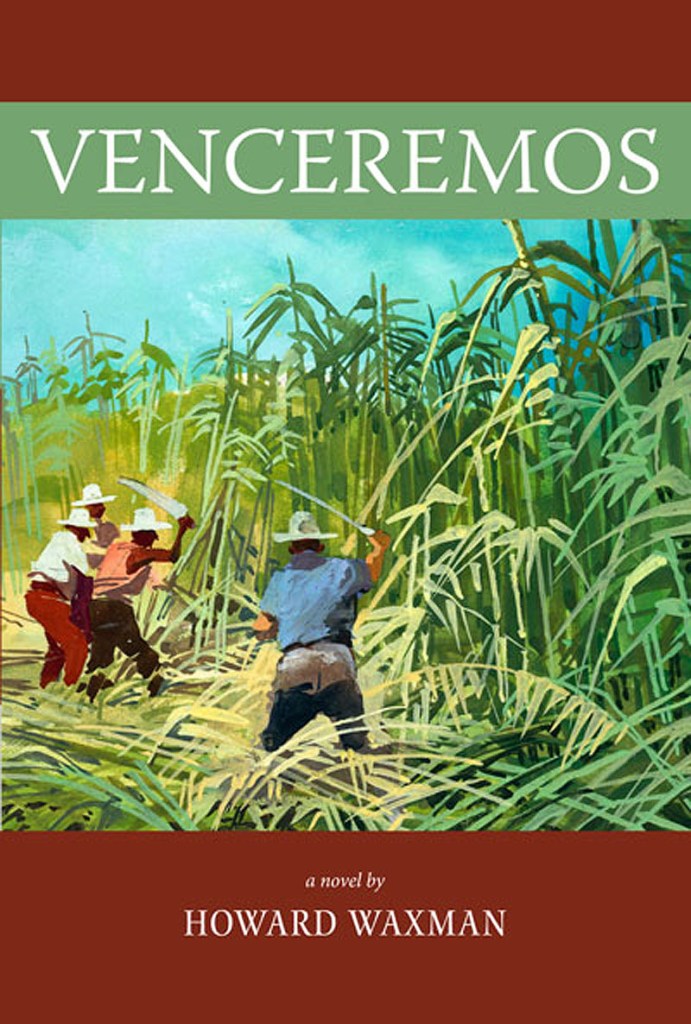“Venceremos,” the debut novel by Bath author Howard Waxman, has it all: Suspense, fast-paced action and sparkling dialogue. And its portrayal of 1970s hippie culture makes for a fascinating trip back in time.
Its hero is 21-year-old Jay Cardinale of Brooklyn, N.Y. We learn early in the book that he was drafted into the Army, where he became a Vietnam War hero during a firefight. A bayonet wound puts him out of action and, while home for recovery, he decides to desert.
On the lam, he falls in with hardcore anti-war activists, among them the despicable Roger Chumley, who accidentally — or maybe deliberately — kills Eddy McWilliams when a bomb Roger is making blows up in a Manhattan townhouse.
That’s the background of the novel, all delivered in the first few pages. The rest of the 312-page book hinges upon a Faustian deal that Eddy’s powerful and government-connected parents force on Cardinale: Kill Roger Chumley in return for a full pardon signed by the president.
They offer the deal through two frightening agents dressed in seersucker suits. “Take the offer or people you like will get hurt,” one of them tells Cardinale. “People like your hippie friends. … Take the deal and everyone stays healthy. Even back in Brooklyn (where Cardinale’s ailing parents live)…”
Refusing at first, Jay changes his mind when the “seersuckers” get tough. He’s given a bottle of poison to do in Roger, who’s hiding out in Cuba. The agents supply him with a Canadian passport and an alibi for getting onto the forbidden island. He’s instructed to hook up with the Venceremos Brigade, a cadre of committed lefties intent on helping Castro with the sugar-cane harvest.
“Venceremos,” title of both the novel and the brigade, is a rallying cry in Spanish meaning “we will prevail.”
As preposterous as the plot may seem, Waxman’s story comes across as flawless in the context of the 1970s. He tells the story in the first person from Jay Cardinale’s viewpoint, and the suspense is palpable.
I particularly liked Waxman’s use of anecdotes that illuminate the lives and morals of a hippie culture that was intense, laid-back and remarkably sexual.
Early in the book, for instance, before Jay goes to Cuba, he’s in Golden Gate Park when he hears a woman yell, “Bill. Hey Bill.”
“Since my name is Jay,” the narration goes, “it made no sense to look around. But I knew she meant me …”
Jay then meets Sheri, the woman who called him “Bill.” She tells him that she felt a strong “vibe” as he passed and that his turning “was proof that the vibe between us was real.
For the next several weeks, Jay and Sheri hang out at Big Sur, “sleeping out on the beach, making love in the rain, and generally having a fine time.” Eventually, they wind up at a commune in Vancouver, where Sheri renames herself “Wildflower.”
Other neat little humorous anecdotes fit the book into its time and place, among them a description of life on the boat bound for Cuba. Meetings on board intended to build solidarity apparently fell short of their mission.
“The blacks had their own meetings and the women had their meetings,” Jay narrates to readers, “and the white men had trouble figuring out where they belonged. What was our common identity except we were white and men and were at fault for everything that was wrong?”
Like his main character, Waxman grew up in Brooklyn. He joined alternative theater productions in the 1960s and went on to become a playwright. His creations — “Knuckle Sandwich,” “Punk Rock Joan La Poucelle” and “Landslide” — were produced by the Lion Theater Company in New York, among others. He’s been a theater critic for Variety and is a two-time winner of the Wisconsin Arts Board Playwriting Fellowship.
“Venceremos” is poignant, nostalgic and at times very funny. It’s a mystery that dwells on big issues such as war and social change. The book’s a winner that I heartily recommended.
Lloyd Ferriss is a writer and photographer who lives in Richmond.
Send questions/comments to the editors.


